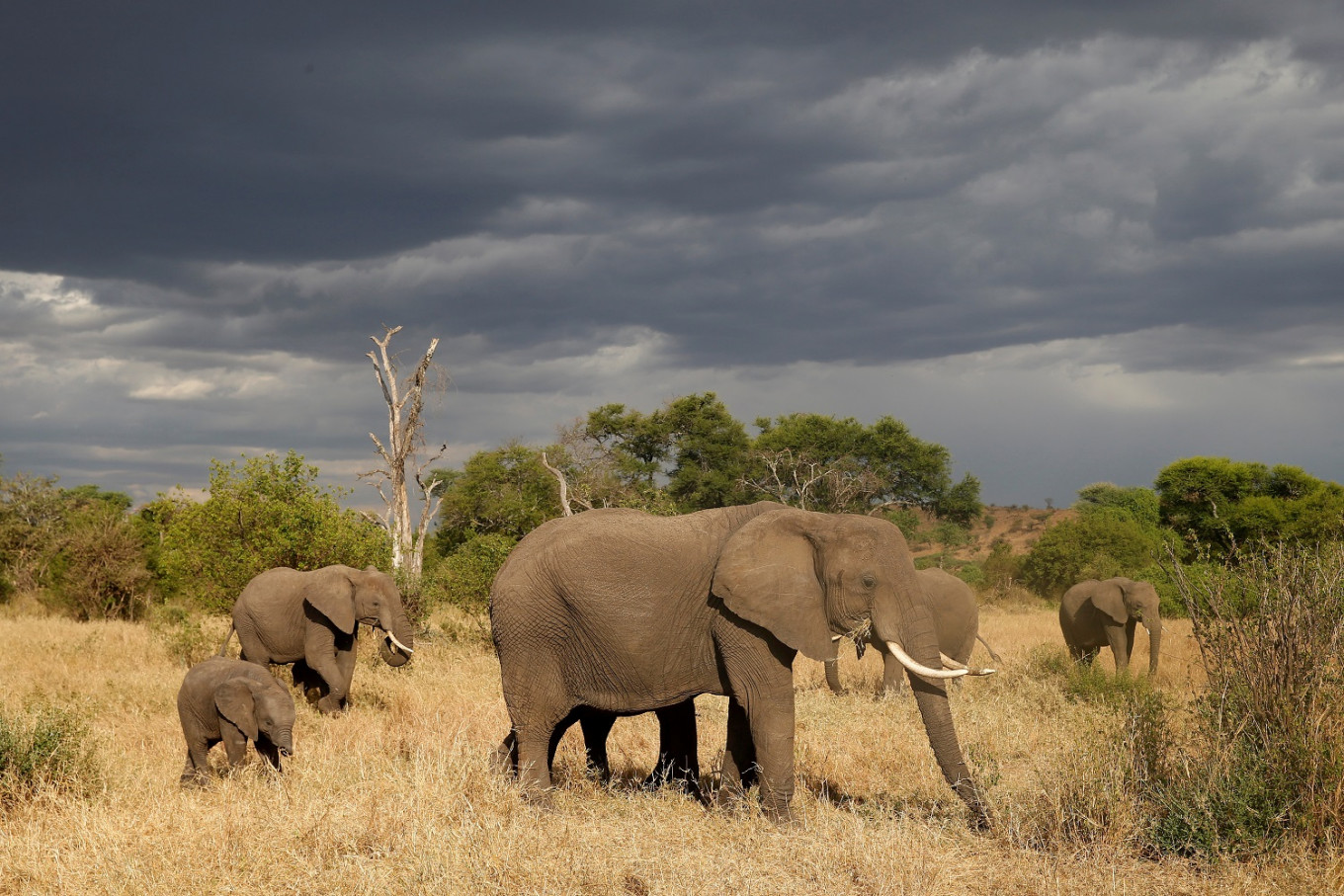Popular Reads
Top Results
Can't find what you're looking for?
View all search resultsPopular Reads
Top Results
Can't find what you're looking for?
View all search resultsTanzania says elephant, rhino populations rebounding after anti-poaching crackdown
Elephant and rhino populations in Tanzania have begun to rebound after a government crackdown dismantled organized criminal networks involved in industrial-scale poaching.
Change text size
Gift Premium Articles
to Anyone
E
lephant and rhino populations in Tanzania have begun to rebound after a government crackdown dismantled organized criminal networks involved in industrial-scale poaching, the country's presidency said.
A prominent Chinese businesswoman dubbed the "Ivory Queen" was sentenced to 15 years in prison by a Tanzanian court in February for smuggling the tusks of more than 350 elephants to Asia, marking a major victory for the government.
"As a result of the work of a special task force launched in 2016 to fight wildlife poaching, elephant populations have increased from 43,330 in 2014 to over 60,000 presently," the presidency said in a statement late on Tuesday.
The number of rhinos, an endangered species, had increased from just 15 to 167 over the past four years, it said.
The elephant population in Tanzania, famed for its wildlife reserves, shrank from 110,000 in 2009 to little more than 43,000 in 2014, according to a 2015 census, with conservation groups blaming rampant poaching.
Read also: Online petition asks Tanzania to keep Mt. Kilimanjaro 'cable car-free'
Demand for ivory from Asian countries such as China and Vietnam, where it is turned into jewels and ornaments, has led to a surge in poaching across Africa.
Tourism is the main source of hard currency in Tanzania, best known for its wildlife safaris, Indian Ocean beaches and Mount Kilimanjaro.
The presidency said revenues from tourism were $2.5 billion last year, up from $1.9 billion in 2015.
It said Tanzania had set aside 32 percent of its total land area for conservation activities and dismissed criticism from environmentalists about a $3 billion hydropower dam project in the Selous Game Reserve, a UNESCO World Heritage Site.











